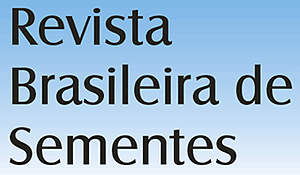The impacts of the anthropic actions in roadsides promotes a differenciated ecosystem in its surroundings facilitating the establishment of opportunist species like annoni-2-grass (Eragrostis plana Nees). The roadsides of Rio Grande do Sul state, in southern Brazil, are invaded by this weed specie forming dispersion centers. The objective of this study was to evaluate the soil seed bank (SSB) size and composition in these roadsides, and demonstrate its potential to regenerate the original grassland of these degraded and invaded areas. The trial was established on roadside next to the São Lucas Farm headquarters, in Rio Pardo county RS, from January 2005 to may 2006. The experimental design was a split-plot type in complete blocks, with tree replications. The plots were submitted to two treatments: deep sub-soil tillage and deep sub-soil tillage plus light soil disking plus limestone and phosphate application. The split-plots were sowed with Megathyrsus maximus, Setaria sphacelata, a mixture of seeds of three native Paspalum sp. and exclusion. The percentage of exotic seed species represented 20% of the SSB composition in which annoni-2-grass presented the highest seed percentage. The inhibitor species of annoni-2-grass SSB were Setaria sphacelata and Megathyrsus maximus associated with the use of deep sub-soil tillage plus light soil disking plus fertilization. The size and richness of the SSB showed high potential to regeneration of native vegetation in roadsides invaded by annoni-2-grass.
impacts; roadside; exotic species; Eragrostis plana Nees






